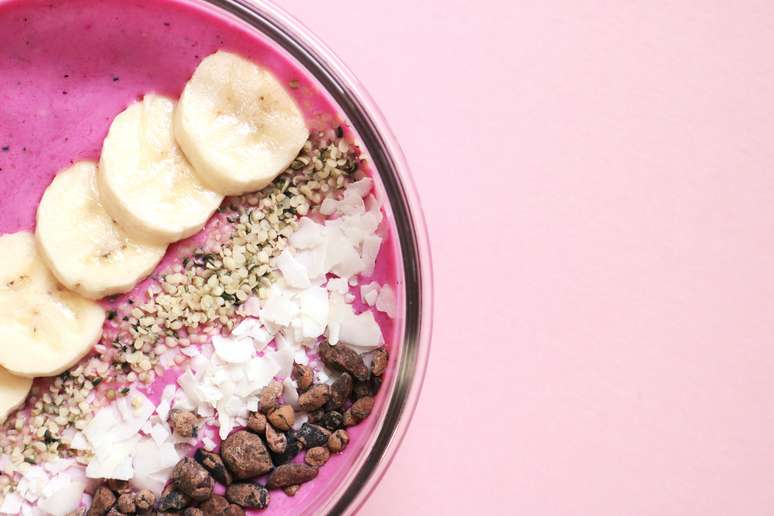Studies show that several nutrients, such as protein, folic acid, and vitamin B12, play key roles in muscle growth
If you are serious about gaining muscle mass, nutrition should be your focus. That’s because what you eat — or don’t eat — is just as important as how you train. But not all foods are suitable for building muscle. While foods high in protein can speed muscle growth, others, like refined sugars, may not be very good for your muscles. Here’s everything you need to know about the best foods for gaining muscle mass.
html[data-range=”xlarge”] figure image img.img-885acc0168ddebc38e3cc64af05b00558a0c0esn { width: 774px; height: 516px; }HTML[data-range=”large”] figure image img.img-885acc0168ddebc38e3cc64af05b00558a0c0esn { width: 548px; height: 365px; }HTML[data-range=”small”] figure figure img.img-885acc0168ddebc38e3cc64af05b00558a0c0esn, html[data-range=”medium”] figure image img.img-885acc0168ddebc38e3cc64af05b00558a0c0esn { width: 564px; height: 376px; }
HOW NUTRITION INFLUENCES MUSCLE GROWTH
Nutrition plays a vital role in muscle growth. Intense exercise (such as bodybuilding, cross training) causes “trauma” to muscle fibers, which trigger a process of repair and replacement. Muscle growth occurs when the rate of muscle protein synthesis (or the muscle repair process) is greater than the rate of muscle protein breakdown. Nutrients, such as protein, help “fuel” muscle synthesis. Protein helps in the muscle fiber repair process and in the sense of satiety.
However, protein alone doesn’t guarantee maximum muscle gain: You also need a source of energy to fuel your body, and the easiest way to do that is by eating carbohydrates. These macronutrients recover the energy expended in training and stimulate the secretion of insulin, a hormone essential for building muscle – that’s right, carbohydrates also help increase lean body mass.
But that’s not all: you should also add healthy fats, such as monounsaturated fats and omega-3 and 6 fatty acids, which directly help protect the heart and reduce the risk of inflammatory diseases. These fats promote the production of muscle-building hormones such as testosterone. “Fats are essential for giving the body energy, protecting organs, absorbing nutrients and producing hormones,” explains Dr. Odilon Denardin, endocrinologist and medical consultant at Labi Exames.
FOODS TO GAIN MASS
While it’s helpful to know which isolated nutrients are best for building muscle, let’s focus on real foods. Here are which ones to add to your diet to stimulate muscle growth:
- protein powder
Most brands contain around 10-30 grams of protein per serving, making protein powders a great way to boost your protein stores before or after your workout. Also, most powders dissolve easily in water or milk, making it easier to prepare recipes such as smoothies. Protein powders come in a variety of formats, including whey protein and plant-based proteins like rice, pea, and others.
A systematic review in Sports Medicine looked at the effect of protein supplementation on performance in adults aged 18-50. It was found that although protein supplementation in untrained subjects had no impact on lean muscle mass and muscle strength during the first few weeks of resistance training, protein supplementation appeared to improve muscle strength gains in both untrained subjects. trained than in trained ones.
- Chicken breast
One piece of boneless, skinless chicken breast contains about 55 grams of protein, making it a great muscle-building food. But in addition to protein, chicken is also an excellent source of micronutrients such as iron and vitamin B12.
There are many ways to include chicken in your diet. However, avoid breading and frying. Instead, grill or bake.
Season with paprika or lemon pepper. Combined with a complex carbohydrate such as sweet potato, brown rice or quinoa, it offers the best possible combination of nutrients for building lean mass.
- Egg
They are one of the best forms of complete protein (a source that contains all nine amino acids). One large hard-boiled egg contains about 6-7g of protein. Plus, eggs contain other nutrients and “good” fats, which aid in muscle growth.
While consuming egg whites has been shown to improve muscle building, eggs—whole eggs, cpm to yolk—may have a benefit. According to a study in the American Journal of Clinical Nutrition, consuming whole eggs right after resistance training increased muscle protein production more efficiently than egg whites alone.
- tofu
This soy-based food is a great alternative to animal protein – tofu contains about 8g of protein for every 100g serving. Plus, it’s also a great source of calcium and iron, which promote muscle growth. Calcium helps muscles contract and relax properly, while iron helps deliver oxygen to muscle cells.
According to a 2015 review in the Journal of the American College of Nutrition, soy protein is just as effective as animal-based protein at supporting weight loss and promoting gains in lean muscle mass, and it also offers benefits additional cardiometabolic.
- Skimmed milk
Skim milk (high in carbohydrates but low in fat) is a perfect addition to post-workout protein shakes. It contains approximately 12 grams of carbohydrates and 8 grams of protein per cup, making it a great source of protein and energy.
In an older 2007 study examining the effect of post-workout consumption of skim milk on novice, male weightlifters, skim milk was found to increase muscle hypertrophy in the early stages of resistance training.
- Tuna
A can of tuna contains about 42 grams of protein. It also contains several vitamins and minerals, such as iron, magnesium and vitamin B12, which support muscle growth.
Tuna is also rich in omega-3 fatty acids, which are not only good for your heart but also help improve muscle mass and strength. For example, a 2015 study in the American Journal of Clinical Nutrition found that fish oil-derived omega-3s slowed the decline in muscle mass and function in older adults.
FOODS THAT DISTURB MUSCLE GAIN
Not all foods are useful for gaining lean body mass. If you’re focused on building muscle, take out these bad guys:
Alcohol: Consuming alcohol can negatively affect your ability to build muscle as it interferes with the protein synthesis process. Additionally, digesting alcohol forces the body to use antioxidants, compounds that protect cells from harmful free radicals. This reduces the amount of antioxidants available to support optimal cellular function in the body, which can affect muscle-building efficiency, he says.
Refined sugars: Sugary foods like cakes, ice cream and donuts are high in calories but low in nutrients. “While it’s true that a calorie is a calorie in terms of a mathematical equation, not all calories are of the same quality,” Karmali says. Instead of sugary foods, eat complex carbohydrates like bananas and apples, as they contain fiber and other nutrients that aid in digestion and exercise performance.
Fried or breaded foods: Avoid foods like french fries, breaded onion rings, and breaded chicken, as they promote inflammation and digestive issues, which can impact exercise performance.
FOODS TO GAIN MASS: WHEN TO EAT

An hour before your workout, eat a meal high in carbohydrates and protein to ensure you get the gas you need. Post-workout, consume 25 to 40 grams of protein and 50 to 100 grams of carbohydrates. You prefer to consume foods in the wild and reserve supplements for when you are unable to make a proper meal. Post workout meal ideas:
- A cup of egg whites with 1 cup of oatmeal
- One scoop of protein powder with a banana
- 1 cup of skimmed milk and 1 cup of sliced strawberries.
Source: Terra
Ben Stock is a lifestyle journalist and author at Gossipify. He writes about topics such as health, wellness, travel, food and home decor. He provides practical advice and inspiration to improve well-being, keeps readers up to date with latest lifestyle news and trends, known for his engaging writing style, in-depth analysis and unique perspectives.







